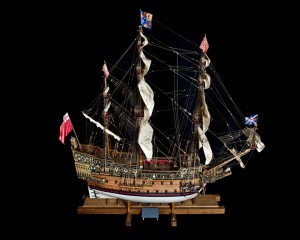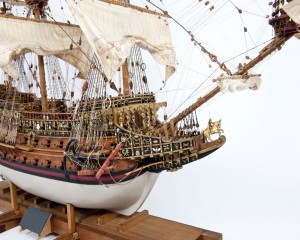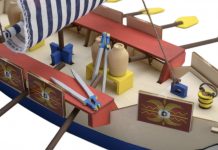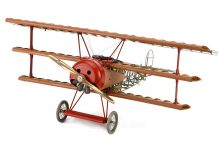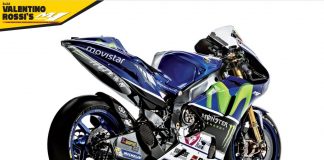Sovereign of the Seas: Thomas Heywood’s Description
The playwright and stage designer Thomas Heywood was responsible for much of the ornamentation of the ship. In 1637, when she was launched, he published A True Description of His Majesties Royall Ship, later called A true Discription of his Majesties royall and most stately Ship called the Soveraign of the Seas. In it, he maintained that the Sovereign of the Seas was part of the great story of maritime architecture beginning with Noah’s Ark and the Argo, which Jason sailed on in pursuit of the Golden Fleece. Along with engravings of the Sovereign of the Seas and her ornamentation, Heywood gives a résumé of the doings of King Edgar and his navy. This seen as the forerunner of Charles I’s navy, whose crowning glory was now the Sovereign of the Seas. Then Heywood begins his description of the great ship itself:
“I began at the Beak-head, where I desire you to take notice, that upon the stemme-head there is Cupid, or a child resembling him, bestriding, and bridling a Lyon, which importeth, that sufferance may curbe Insolence, and Innocence restraine violence; which alludeth to the great mercy of the King, whose Type is a proper Embleme of that great Majesty, whose Mercy is above all his Workes.
On the Bulk-head right forward, stand six severall Statues in sundry postures, their Figures representing Consilium, that is, Counsell: Cura, that is, Care: Conamen, or industry, and unanimous indeavour in one compartment: Counsell holding in her hand a closed or folded Scrole; Care a Sea-compasse; Conamen, or Industry, a Lint-stock fired. Upon the other, to correspond with the former, Vis, or Vertue, a sphearicall Globe: and Victoria, or Victory, a wreath of Lawrell. The Moral is, that in all high Enterprizes there ought to be first Counsell to undertake; then Care, to manage; and Industry, to performe; and in the next place, where there is ability and strength to oppose, and Vertue to direct, Victory consequently is alwayes at hand ready to crowne the undertaking.
Upon the Hances of the waste [the rising curve from the waist of the ship to the quarterdeck] are foure Figures with their severall properties: Jupiter riding upon an Eagle, with his Trisulk (from which hee darteth Thunder) in his hand; Mars with his Sword and Target, a Foxe being his Embleme: Neptune with his Sea-horse, Dolphin, and Trident: and lastly Aeolus upon a Camelion (a beast that liveth onley by the Ayre) with the foure Windes, his Ministers or Agents, the East, call’d Eurus, Subsolanus and Apeliotes: the North-winde, Septemtrio, Aquilo, or Boreas: the West, Zephrus, Favonius, Lybs, and Africus: the South, Auster, or Notus.
I come now to the Stearne, where you may perceive up the upright of the upper Counter, standeth Victory in the middle of the Frontispiece, with this general Motto, Validis incumbite remis: It is so plaine, that I shall not need to give it any English interpretation: Her wings are equally disply’d; on one Arme she weareth a Crowne, on the other a Laurell, which imply Riches and Honour: in her two hands she holdeth two Mottoes; her right hand, which pointeth to Jason, beares this Inscription, Nava, (which word howsoever by some, and those not the least opinionated of themselves, mistaken) was absolutely extermin’d, and excommunicated from all Grammaticall Construction, nay, Jurisdiction; for they would not allow it to be Verbe, or Adverbe, Substantive, nor Adjective: and for this I have not onely behind my back bin challenged, but even Viva voce taxed, as one that had writ at randum, and that which I understood not. But to give the world a plenary satisfaction, and that it was rather their Criticisme, than my ignorance, I intreate thee Reader, but to examine Riders last Edition of his Dictionary, corrected, and greatly augmented by Mr. Francis Holy-oke, and he shall there read Navo, navas, (and therefore consequently nava in the Imperative Mood) ex navus, that is, to imploy with all ones power, to act, to ayde, to helpe, to indeavour with all diligence and industry; and therefore not unproperly may Victory point to Jason, being figured with his Oare in his hand, as being the prime Argonaut, and say Nava, or more plainely, Operam nava; for in those Emblematicall Mottoes quod subintelligitur, non deest. Shee pointeth to Hercules on the sinister side, with his club in his hand, with this Mottto, Clava; as if she should say, O Hercules, be thou as valiant with thy Club upon the Land, as Jason is industrious with his Oare upon the Water. Hercules againe pointing to Aeolus, the god of Windes, saith Flato; who answereth him againe, Flo: Jason pointing to Neptune, the god of the Seas, (riding upon a Sea-horse) saith Faveto; to whom Neptune answereth, No: These words Flo, and No, were also much excepted at, as if there had beene no such Latine words, till some better examining their Grammar Rules found out Flo, flas, flavi, proper to Aeolus, and No, nas, navi, to Neptune, &c.
In the lower Counter of the Sterne, on either side of the Helme is this Inscription,
Qui mare, qui fluctus, ventos, naves[que] gubernat,
Sospitet hanc Arcam Carole magne tuam.
Thus Englisht:
He who Seas, Windes, and Navies doth protect,
Great Charles, thy great Ship in her course direct.
There are other things in this Vessell worthy remarke, at least, if not admiration; namely, that one Tree, or Oake made foure of the principall beames of this great Ship, which was Forty foure foote of strong and serviceable Timber in length, three foote Diameter at the top, and Ten foot Diameter at the stubbe or bottome.
Another, (as worthy of especiall Observation is) that one peece of Timber which made the Kel-son, was so great, and weighty, that 28. Oxen, and 4. Horses with much difficulty drew it from the place where it grew, and from whence it was cut downe, unto the water-side.
There is one thing above all these, for the World to take especiall notice of, that shee is, besides her Tunnage, just so many Tuns in burden, as their have beene Yeeres since our Blessed Saviours Incarnation, namely, 1637. and not one under, or over: A most happy Omen, which though it was not at the first projected, or intended, is now by true computation found so to happen.
It would bee too tedious to insist upon every Ornament belonging to this incomparable Vessel, yet thus much concerning Her outward appearance. She hath two Galleries of a side, and all of most curious carved Worke, and all the sides of the ship are carved also with Tropies of Artillery and Types of honour, as well belonging to Land as Sea, with Symboles, Emblemes, and Impresses appertaining to the Art of Navigation: as also their two sacred Majesties Badges of Honour, Armes, Eschutchions, &c. with severall Angels holding their Letters in Compartments: all which workes are gilded quite over, and no other but gold and blacke to bee seene about her. And thus much in a succinct way I have delivered unto you concerning her inward and outward Decorements. I came now to Discribe her in her exact Dimension.
Her Length by the Keele, is 128 foot or there about, within some few inches. Her mayne breadth or widenesse from side to side 48. foote. Her utmost length from the fore-end of the Beake-head, unto the after end of the Sterne, a prora ad puppim 232. foote, she is in height from the bottome of her Keele to the top of her Lanthorne seaventy sixe foote, she beareth five Lanthornes, the biggest of which will hold ten persons to stand upright, and without shouldring or pressing one the other.
She hath three flush Deckes, and a Fore-Castle, an halfe Decke, a quarter Decke, and a round-house. Her lower Tyre hath thirty ports, which are to be furnished with Demy-Cannon and whole Cannon through out, (being able to beare them). Her middle Tyre hath also thirty ports for Demi-Culverin, and whole Culverin: Her third Tyre hath Twentie sixe Ports for other Ordnance, her fore-Castle hath twelve ports, and her halfe Decke hath fourteene ports; She hath thirteene or foureteen ports more within Board for murdering peeces, besides a great many Loope holes out of the Cabins for Musket shot. She carrieth moreover ten peeces of chase Ornance in her, right forward; and ten right aff, that is according to Land-service in the front and the reare. She carrieth eleaven Anchors, one of them weighing foure thousand foure hundred, &c. and according to these are her Cables, Mastes, Sayles, Cordage; which considered together, seeing his Majesty is at this infinite charge, both for the honour of this Nation, and the security of his Kingdome, it should bee a great spur and incouragement to all his faithful and loving Subjects to bee liberall and willing Contributaries towards the Ship-money.
I come now to give you a particular Denomination of the prime Worke-men imployed in this inimitable Fabricke; as first Captayne Phines Pett, Over-seer of the Worke, and one of the principal Officers of his Majesties Navy; whose Ancestors, as Father, Grand-father, and Great-Grand-father, for the space of two hundred yeares and upwards, have continued in the same Name, Officers and Architectures in the Royall Navy; of whose knowledge, experience, and judgement, I can not render a merited Character.
The Maister Builded is young M. Peter Pett, the most ingenious sonne of so much improoved a Father, who before he was full five and twenty yeares of age, made the Model, and since hath perfected the worke, which hath won not only the approbation but admiration of all men, of whom I may truely say, as Horace did of Argus, that famous Ship-Master, (Who built the great Argo in which the Grecian Princesse Rowed through the Hellespont, to fetch the golden Fleece from Colchos).
Ad Charum Tritonia Devolat Argum,
Moliri hanc puppim iubet
that is, Pallas her selfe flew into his bosome, and not only injoin’d to the undertaking, but inspired him in the managing of so exquisite and absolute an Architecture.
Let me not here forget a prime Officer Master Francis Shelton, Clerke of the Checke, whose industry and care, in looking to the Workmen imployd in this Architecture, hath beene a great furtherance to expedite the businesse.
The Master Carvers, are John and Mathias Christmas, and Sonnes of that excellent Workeman Master Gerard Christmas, some two yeeres since deceased, who, as they succeed him in his place, so they have striv’’d to exceed him in his Art: the Worke better commending them than my Pen is any way able, which putteth me in minde of Martiall, looking upon a Cup most curiously Carved.
Quis labor in phiala? Docti Mios? anne Mironis?
Mentoris an manus est? an Polyclete tua?
What Labour’s in this curious Bowle?
Was’t thine ô Myus tell?
Myrons? Mentors? or Polyclets?
He that can carve so well.
And I make no question, but all true Artists can by the view of the Worke, give a present nomination of the Workmen.
The Master-Painters, Master Joyner, Master Calker, Master Smith, &c. all of them on their severall faculties being knowne to bee the prime Workmen of the Kingdome, selectedly imployd in this Service.
Navis vade, undae fremitum posuere minaces,
Et Freta Tindaridae spondent secura gemelli,
Dessuetam iubent pelago decurre Puppim,
Auster et optatas afflabit molliter auras.
Heywood even wrote a poem to the great ship:
An Epigram up his Majesties
Great Ship, lying in the Docke
at Wooll-witch
What Artist tooke in hand this Ship to frame?
Or Who can guesse from whence these tall Okes came?
Unlesse from the ful grown Dodonean grove,
A Wildernesse sole sacred unto Jove.
What Eye such brave Materials hath beheld?
Or by what Axes were these Timbers feld?
Sure Vulcan with his three Cyclopean Swaines,
Have forg’d new Metalls from their active braines,
Or else, that Hatchet he hath grinded new,
With which he cleft Joves skull, what time out flew
The arm’d Virago, Pallas, who inspires
With Art, with Science, and all high desires.
Shee hath (no doubt) raptur’d our Undertaker
This Machine to devise first, and then make her.
How else could such a mighty Mole be rais’d?
To which Troyes horse, (by Virgil so much prais’d,
Whose bulke a thousand armed me contein’d)
Was but a toy, (compar’d) and that too feign’d
For she beares thrice his burden, hath roome, where
Enceladus might rowe, and Tition steere:
But no such Vessell could for them be made,
Had they intent, by Sea the gods to invade.
The Argoe, stellified because ’twas rare,
With this Ships long Boat scarcely might compare.
Yet sixty Greek Heroes even in that
With Oares in hand, upon their Transtrae sate.
Her Anchors, beyond weight, expanst, and wide,
Able to wrestle against Winde, and Tyde:
Her big-wrought Cable like that massie Chaine
With which great Xerxes bounded in the Maine
’Tweene Sestos and Abidos, to make one,
Europe and Asia, by that Lyne alone.
Her five bright Lanthorns luster round the Seas,
Shining like five of the seven Hyades:
Whose cleare eyes, should they (by oft weeping) fayle
By these, our Sea-men might finde Art to sayle.
In one of which, (which bears the greatest light)
Ten of the Guard at once may stand upright:
What a conspicuous Ray did it dart then?
What more than a Titanian Luster, when
Our Phoebus, and bright Cinthia jointly sphear’d
In that one Orbe, together both appear’d:
With whom seven other Stars had then their station,
All luminous, but lower Constellation.
That Lampe, the great Colosse held, who bestrid
The spacious Rhodian Sea-arme, never did
Cast such a beame, yet Ships of tallest size,
Past, with their Masts erect, betweene his thighes,
Her maine Mast like a Pyramis appeares,
Such as the Aegyptian Kings were many yeeres,
To their great charge erecting, whilst their pleasure
To mount them hie, did quite exhaust their treasure.
Whose brave Top top-top Royal nothing barres,
By day, to brush the Sun; by night, the Starres.
Her Maine-sayle, (if I doe not much mistake)
For Amphetrite might a Kirtle make:
Or in the heate of Summer be a Fanne,
To coole the face of the great Ocean.
Shee being angry, if she stretch her lungs,
Can rayle upon her enemy, with more Tongues
(Louder than Stentors, as her spleene shall rise)
Than ever Junoes Argus saw with his eyes.
I should but loose my selfe, and craize my braine,
Striving to give this (glory of the Maine)
A full description, though the Muses nine
Should quaffe to me in rich Mendaeum Wine.
Then O you Marine gods, who with amaze,
On this stupendious worke (emergent) gaze,
Take charge of her, as being a choise Jemme,
That much out-valews Neptunes Diadem.

